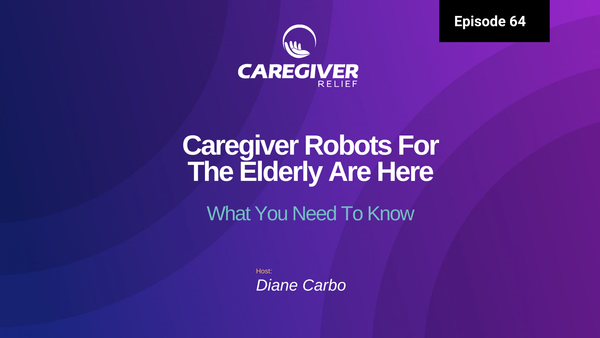What Are Auditory Hallucinations?

An auditory hallucination is the experience of hearing a sound or a voice, even though there is no actual external source. It is a very real phenomenon for those who experience it, and can occur spontaneously or be triggered by an event.
Auditory hallucinations can take many forms, from simple voices or buzzing sounds to complex commands or detailed musical arrangements. They may be experienced by people with a mental health condition, substance use disorder, or in rare cases, without any other diagnosis.
Causes of Auditory Hallucinations
Auditory hallucinations can occur as a result of mental illness, such as schizophrenia and bipolar disorder. Research has also shown a link between substance abuse and auditory hallucinations. Other potential causes include sleep deprivation, trauma, and intense stress.
It is important to remember that auditory hallucinations are not necessarily a sign of a mental health condition, and may simply be a side effect of certain medications or recreational drugs.
Types of Auditory Hallucinations
Auditory hallucinations are experienced in many different forms. Many people hear simple voices, while others experience more complex commands or miscellaneous noises.
Simple voices often sound like one or more people talking to the individual. These voices may be heard in either the first or third person, and can involve lots of different topics, from regular conversation to instructions.
Complex commands involve instructions or demands, usually delivered in a loud and authoritarian manner. Some people find it difficult to resist these commands, as if they are compelled to obey them.
Miscellaneous noises are very diverse, ranging from music to various effects and ambient sounds. It is not uncommon for people to report hearing things like traffic, birds singing, or the sound of waves crashing.
No matter the type of auditory hallucination experienced, it is important to understand what is happening and seek help when necessary.
Diagnosis of Auditory Hallucinations
When someone reports experiencing auditory hallucinations, the first step is for the individual to speak with a doctor or mental health professional. The doctor will review the patient’s medical history, conduct a physical exam, and ask questions about their symptoms in order to determine whether or not the person is indeed experiencing auditory hallucinations.
In making a diagnosis of auditory hallucinations, the doctor will look for certain criteria. These criteria include:
- The patient must report hearing voices without being able to control them.
- The voices must have an auditory quality, rather than being experienced as thoughts.
- The voices must be heard as coming from outside of the patient's head.
- The voices must be distinct and separate from the patient’s own thoughts.
If the patient meets these criteria, they may then be diagnosed with auditory hallucinations. The doctor will also take into account other factors such as the intensity and frequency of the experiences in order to make an accurate diagnosis.
Treatment for Auditory Hallucinations
When faced with auditory hallucinations, it is important to seek out experienced professionals for help. There are several treatment options available to those experiencing auditory hallucinations, including:
- Medication – Depending on the underlying cause of the auditory hallucinations, medications such as antipsychotics may be prescribed.
- Therapy – Various forms of therapy, such as cognitive behavioral therapy (CBT) or dialectical behavior therapy (DBT), can help individuals manage their symptoms and cope with their auditory hallucinations.
- Lifestyle Changes – Making positive lifestyle changes, such as getting enough sleep, exercising regularly, and eating a healthy diet, can help reduce auditory hallucinations.
- Coping Techniques – Practicing relaxation techniques, mindfulness, and other coping strategies can help individuals better manage their auditory hallucinations.
It is important to remember that there is no “one-size-fits-all” solution when it comes to treating auditory hallucinations. Working with experienced professionals, such as a doctor, therapist, or mental health professional, is the best way to determine effective treatments that will work for you.
Coping Strategies
When dealing with auditory hallucinations, there are a few simple strategies that can help reduce the intensity of your experiences. These include distraction, relaxation techniques, and setting boundaries.
Distraction
Distracting yourself can be a great way to cope with auditory hallucinations. Find an activity that will keep your mind occupied and prevent you from fixating on the sounds or voices you're hearing. This could include watching TV, playing a game, listening to music, or talking to friends and family.
Relaxation Techniques
Relaxation techniques such as deep breathing, meditation, yoga, and progressive muscle relaxation can help you manage anxiety and distress related to auditory hallucinations. Finding a technique that works best for you and practicing it regularly can help you relax and take control of your thoughts.
Setting Boundaries
When managing auditory hallucinations, it’s important to set boundaries with yourself and the voices you’re hearing. This may mean challenging the voices when they tell you something that’s untrue or unhealthy. It may also mean establishing limits on how much time and energy you’re willing to give to the voices. Setting boundaries can help you establish control and prevent the voices from taking over your life.
Support Groups for People Living with Auditory Hallucinations
Living with auditory hallucinations can be extremely difficult. Fortunately, there are many support groups available to provide both emotional and practical support. Some of the benefits of joining a support group include:
- Meeting other people who are going through similar experiences, which can help reduce feelings of isolation and foster feelings of acceptance.
- Learning from others’ experiences and tips on how to cope with auditory hallucinations.
- Having a safe place to discuss personal issues without fear of judgement.
- Gaining access to resources and services that can help improve day-to-day life.
There are many online and in-person support groups available for people living with auditory hallucinations. If you or someone you know is living with auditory hallucinations, consider reaching out to one of these groups for guidance and support.
Safety Concerns Related to Auditory Hallucinations
Auditory hallucinations can present many safety concerns, including increased risk of violence towards themselves or others, and an increased risk of suicide. People experiencing auditory hallucinations may find themselves in dangerous situations, as they may not be able to differentiate between real and imaginary threats. It is important for people experiencing auditory hallucinations to take steps to create a safe environment for themselves.
One of the best ways to stay safe when experiencing auditory hallucinations is to make sure you are in a safe environment. Avoiding large crowds, being with trusted friends and family, or having someone accompany you in public can be beneficial. Additionally, people experiencing auditory hallucinations should also be aware of their surroundings and avoid participating in any risky or unsafe behaviors.
Another way to stay safe if you are experiencing auditory hallucinations is to develop a safety plan. This plan should include measures to reduce risk of self-harm, as well as contact information for support services that can provide assistance in a crisis. It can also be helpful to work with a healthcare provider to develop a tailored plan that focuses on your individual needs.
If you are feeling overwhelmed or in danger due to auditory hallucinations, it is important to reach out for help. Talking to a mental health professional or psychologist can help you learn coping strategies to better manage auditory hallucinations and make sure you are staying safe. There are also hotlines and helplines available to provide support and advice if you need it.
Advocacy
Living with auditory hallucinations can be difficult, and it is important to know that there are sources of help available. Advocacy organizations dedicated to helping people who have experienced auditory hallucinations exist, as well as government resources that can provide assistance.
These organizations offer a variety of services, such as housing support, peer support groups, legal advice, and even crisis counseling. They also work to raise awareness about the issue of auditory hallucinations and make sure that people’s rights are respected and protected.
Government resources are also available for people with auditory hallucinations. These may include disability benefits, health insurance, and other financial assistance, as well as specialized programs designed to help people deal with the unique challenges of living with auditory hallucinations.
Research on Auditory Hallucinations and Treatments
Auditory hallucinations are a complex phenomenon and there is still much research to be done in order to better understand them.
At present, research focuses on the neurobiological mechanisms behind auditory hallucinations, as well as how to better diagnose and treat them. Studies are being conducted on the effectiveness of cognitive-behavioral therapies, such as cognitive restructuring and exposure therapy, as well as the efficacy of various medications.
In addition, researchers are exploring the potential of using emerging technologies, such as virtual reality, to help manage and treat auditory hallucinations.
Overall, research on auditory hallucinations is continuing to make progress, with the ultimate goal of finding more effective treatments and improved outcomes for those who experience them.
Conclusion
Auditory hallucinations can be a frightening and confusing experience, and it is important for those who experience them to seek out help and support from their doctor, therapists, family, friends, and support groups. Having access to proper diagnosis, treatment, and coping strategies can help manage auditory hallucinations and improve quality of life.
It is essential to remember that auditory hallucinations are not always caused by mental illness and that many people experience them without having an underlying mental health disorder. However, if the hallucinations are severe or persistent, it is important to seek professional help to determine appropriate diagnosis and treatment.
By understanding auditory hallucinations and the various strategies available to manage them, those who experience them can learn to live more comfortably with the condition and reduce the impact on their daily lives.
You might also like this article:






